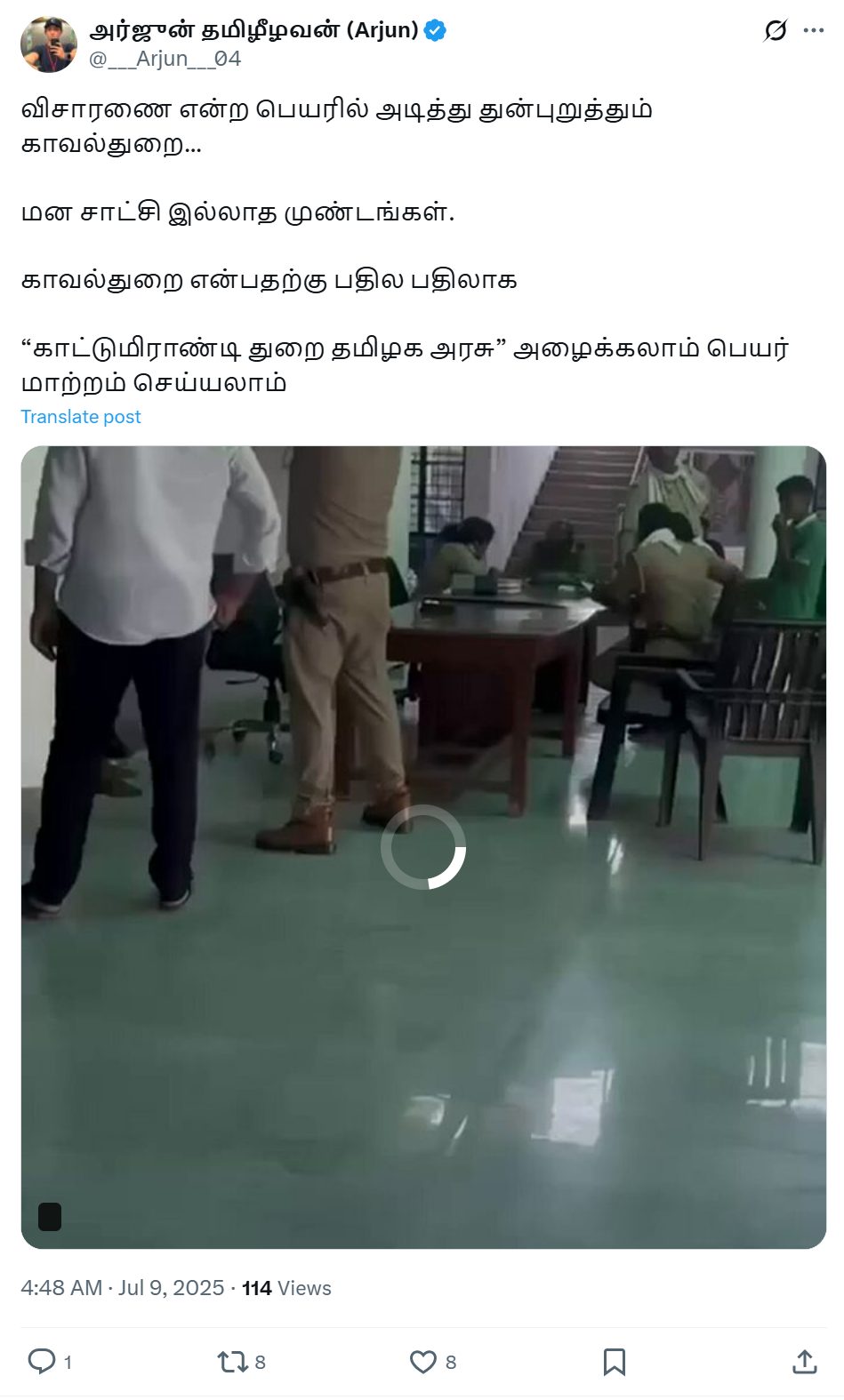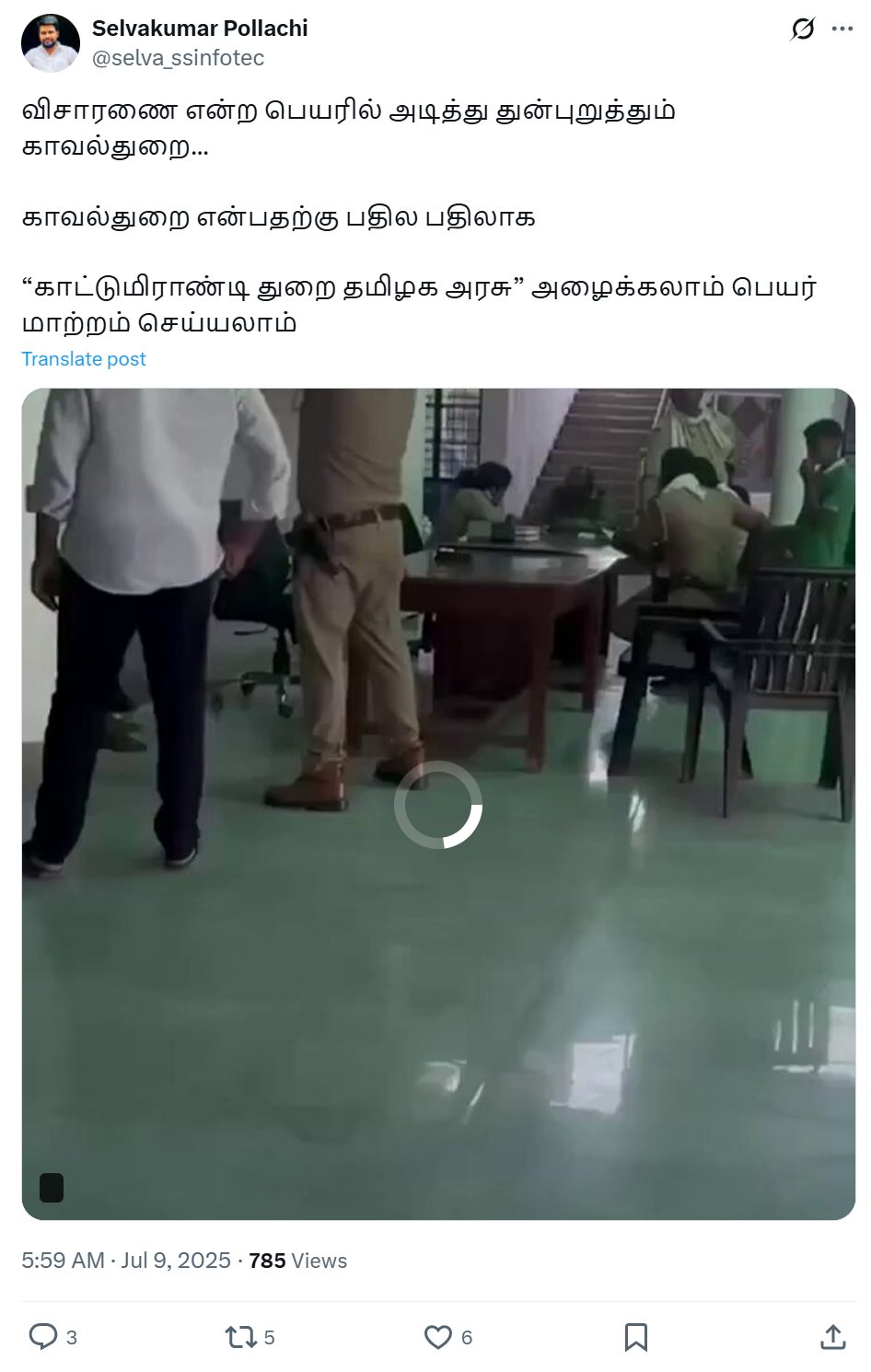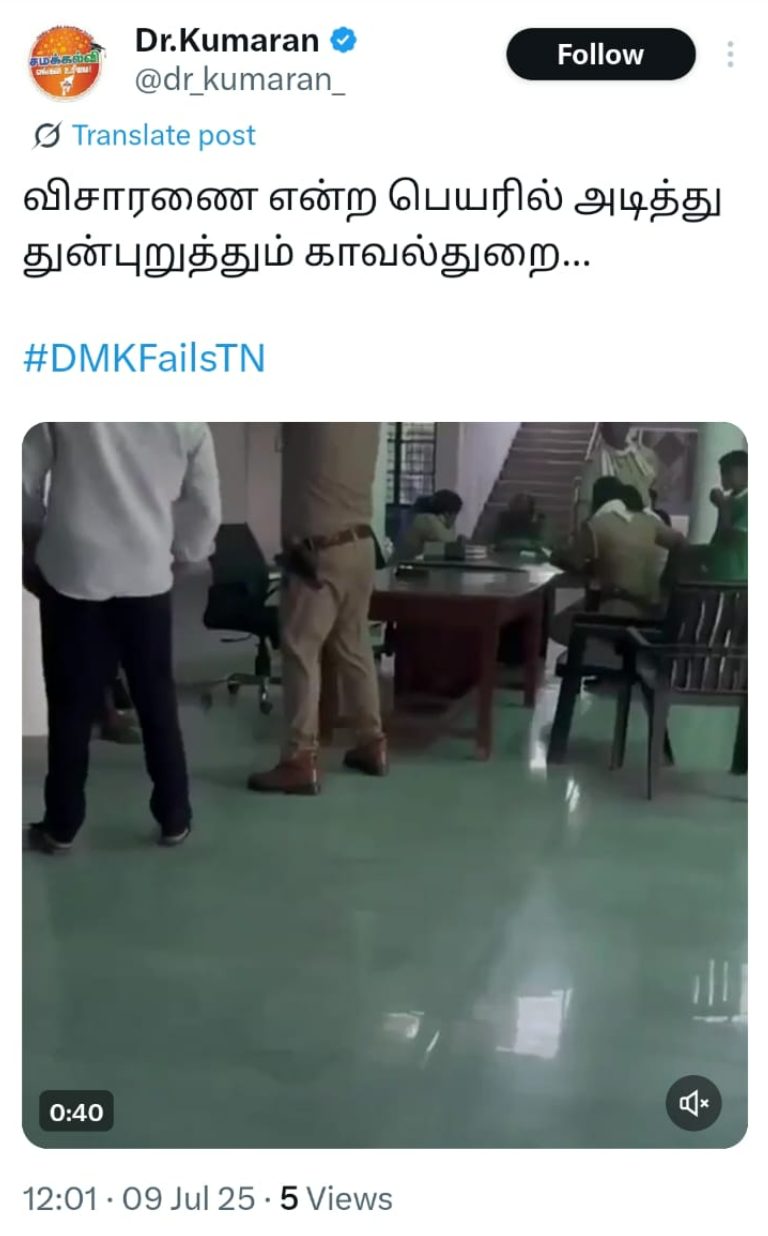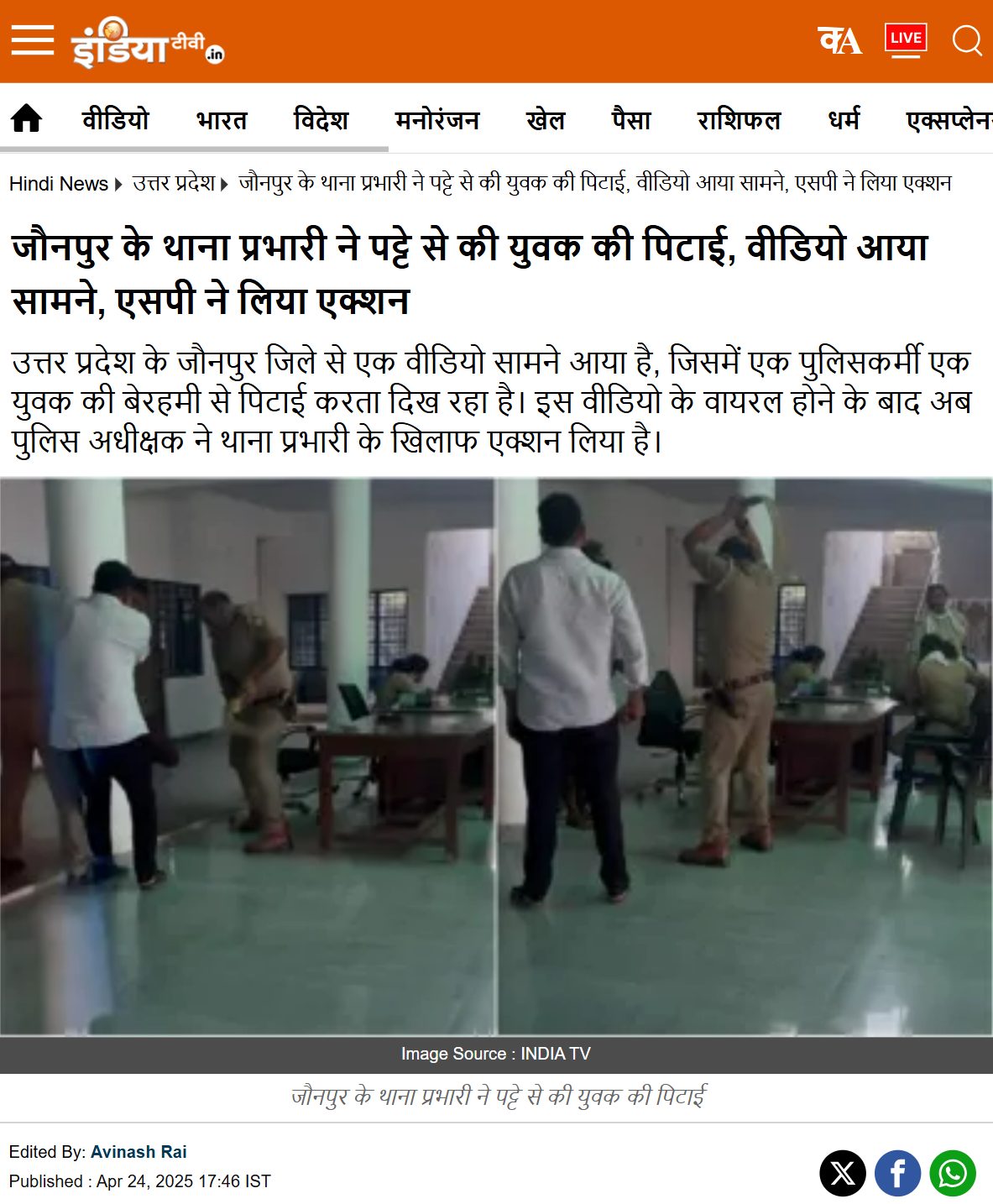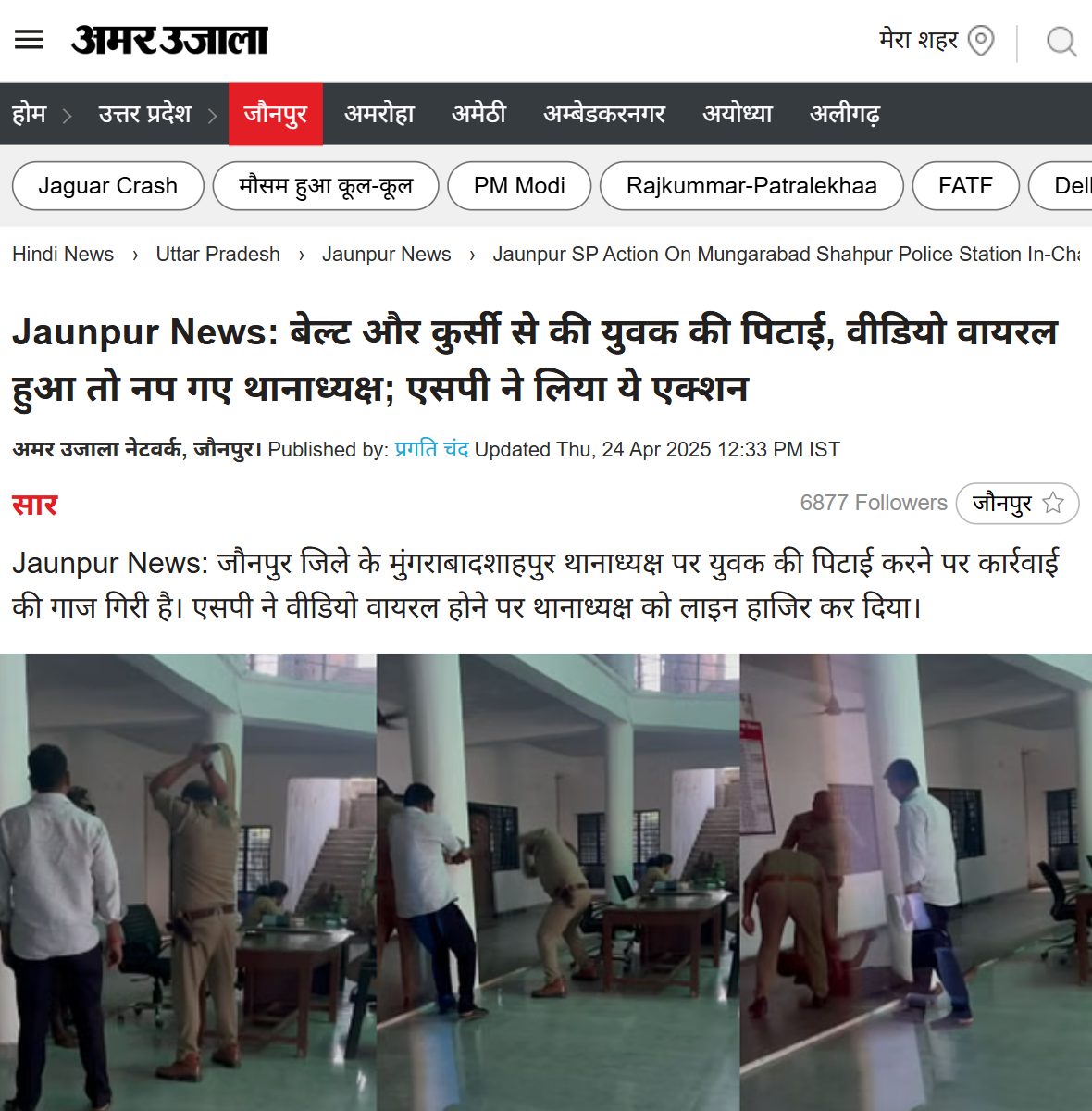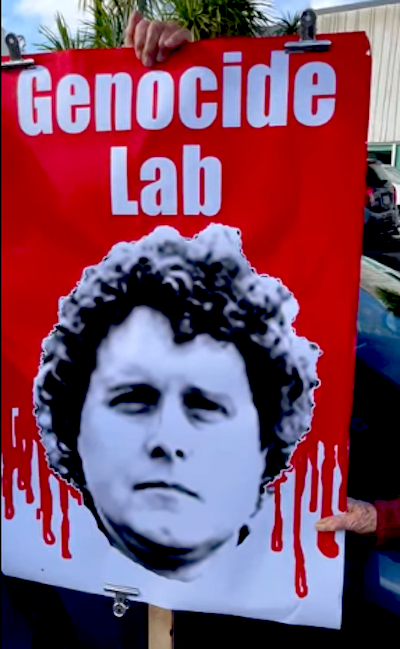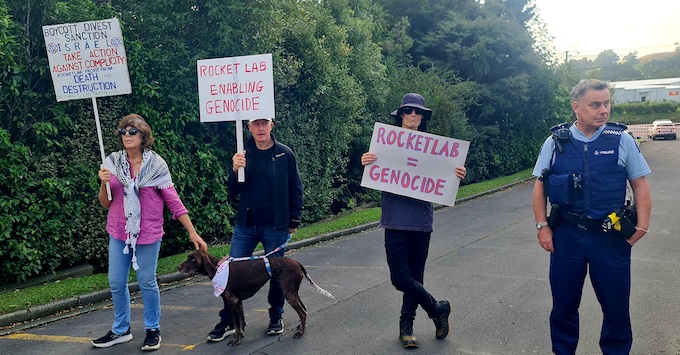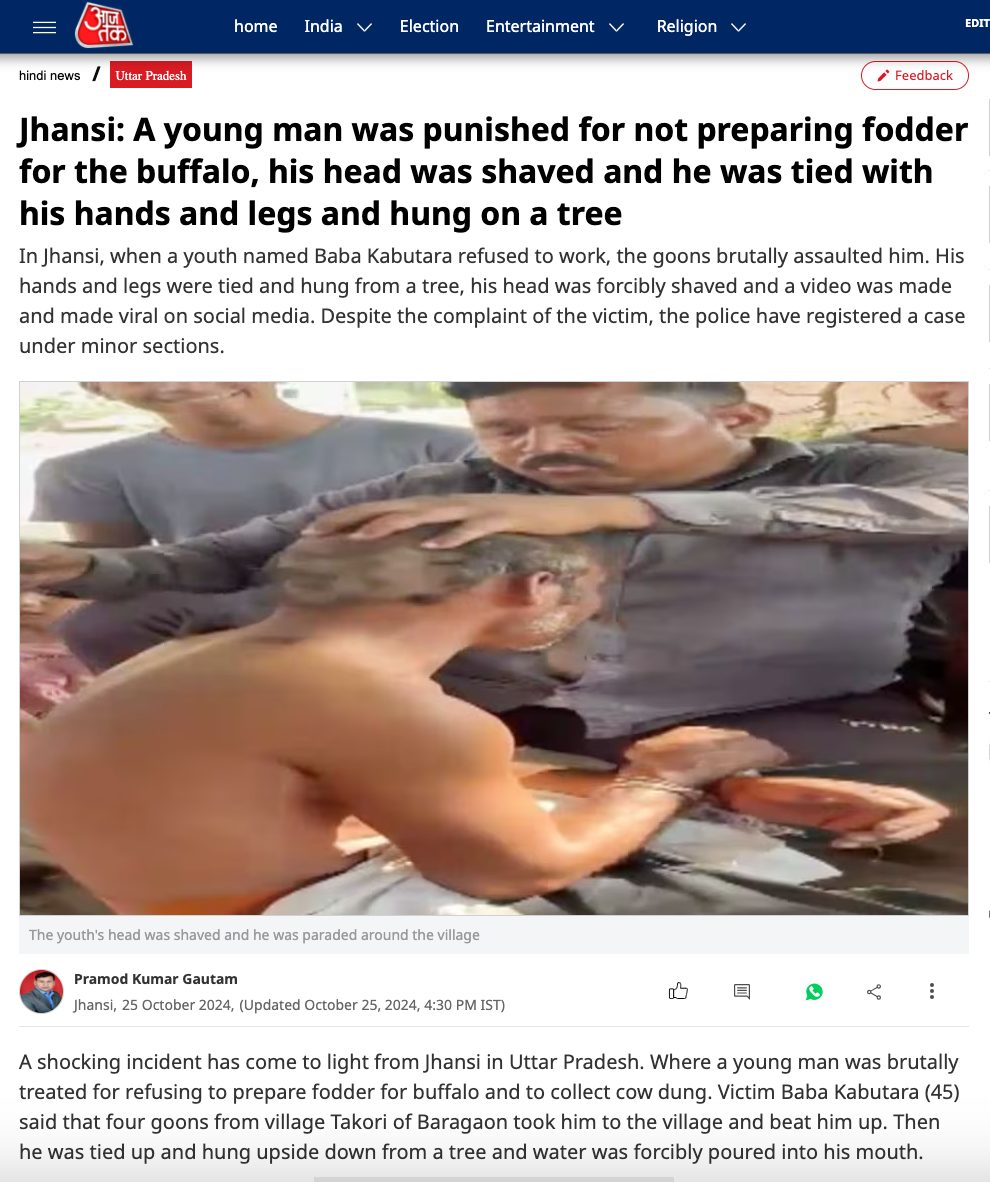The Punjab Police has drawn flak on social media over a controversial post allegedly shared on its X account (@PunjabPoliceInd). The post (reportedly made on July 18, 2025) had an animated image of a light-skinned cop with the Indian tricolour over his face pinning down a dark-skinned man with the Pakistani flag. The police officer’s knee is seen on the neck of the man on the ground. The caption reads, “If you are caught with this flag, be prepared to suffer the consequences”. Social media users shared screenshots of the post, claiming the Punjab Police deleted it after it came under fire:
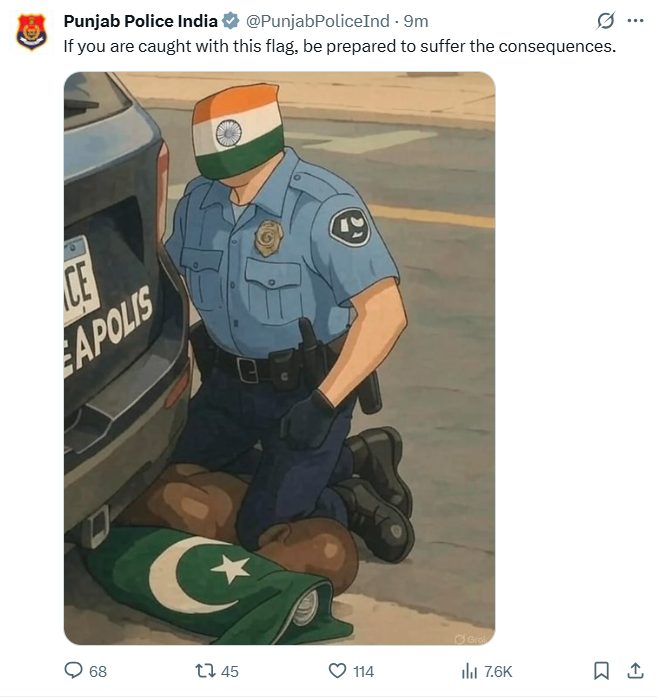
While sharing similar screenshots, many X users expressed anger that an Indian law enforcement authority was endorsing something so controversial and brutal to intimidate. The image bears an uncanny resemblance to George Floyd’s death in police custody in Minneapolis, United States.
On May 20, 2020, 46-year-old African-American George Floyd, unarmed and handcuffed, was pinned to the ground by three officers for using a counterfeit $20 bill to buy cigarettes at a convenience store. One of the officers, Derek Chauvin, a White man, pressed his knee on Floyd’s neck for over nine minutes, resulting in his death. Floyd’s killing triggered large-scale protests against racial injustice and police brutality against Black people in the United States. These protests snowballed into the Black Lives Matter movement. After the incident, four former Minneapolis police officers were found guilty of charges including murder and aiding and abetting second-degree manslaughter.
On July 18, X user Joy (@Joydas) posted the screenshot and wrote: “This is an actual tweet by Punjab Police India. They chose an image which depicts the worst racism and police brutality in the US to score a point…” (Archive)
Meanwhile, some users, whose X posts show a clear alignment with the Right-wing, made light of it and praised the Punjab police.
Another X user ,@BeingPolitical1, whose profile activity shows that they often promote pro-Right content, shared the same screenshot with a caption saying that the Punjab police has given “woke” people and Leftists something to rant about. (Archive)
This user has been called out by Alt News for spreading misinformation several times in the past.
We also came across a post from X account Gianna Floyd (@GFloyddd12), which is also the name of George Floyd’s daughter. This account had posted the viral screenshot with the caption, “Appalled to see this vile post from the official handle of the Indian police. It’s deeply disrespecting to my late father, his family, and the millions of Americans who stood in solidarity with him. The Floyd family is at loss for words”.
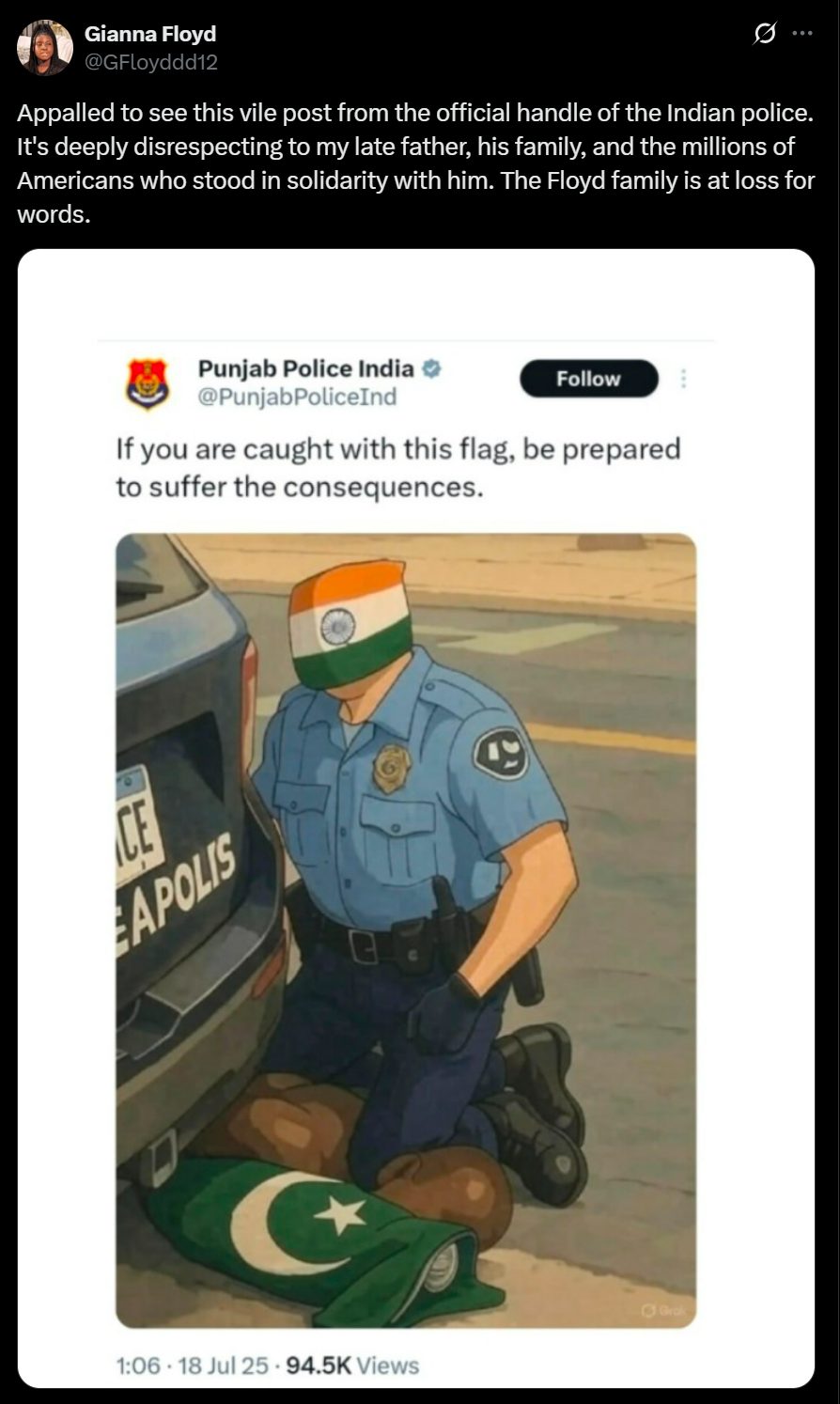
However, Alt News found little evidence to support that this account is actually related to George Floyd’s family. The account was created in December 2024 and there are only three posts—all made on July 18. Besides the above X post, the other was a tribute to George Floyd by a now 17-year-old Keedon Bryant and the most recent post thanked Pakistani handles for being supportive about “her father”. We also noticed that the user @GFloyddd12 follows no one but is followed by 183, many of these followers seemed to be Pakistan-based accounts.
Many other X users also shared the screenshot of the post, claiming that the Punjab police shared and later deleted the controversial post.
Click to view slideshow.
So, did the Punjab Police share this?
‘Post Deleted’
To confirm whether @PunjabPoliceInd actually made this post, we first checked all posts made by the account between July 16 and 18. According to the viral screenshot, the post was made at 1:36 am on July 18, 2025. There were 12 posts shared by the page within that timeframe, but none of them included the viral graphic.
This meant that either no such post was made or that it was made and later deleted.
To check if any such post was deleted, we looked at all replies to @PunjabPoliceInd posts between 1:30 am and 2:00 am on July 18, since most accounts that reshared or responded to the alleged post had done so in this time frame.
Note that even if an X post is deleted, replies to it are visible unless users delete these responses themselves.
We noticed that within this window, several users had commented on one deleted post by the Punjab Police. Majority of the comments mentioned Pakistan, while some mentioned George Floyd. Many social media users had expressed displeasure with the content of the post. This allowed us to find the URL of the deleted X post, but since it was not archived before deleting, we could not immediately check whether this was the contentious post.
Click to view slideshow.
While looking at those who replied and shared screenshots, we came across X user Gul Khan (@ilaqaghair), who had also shared a screen recording accessing the post by the Punjab Police’s X account when it was live. In the video, the user can be seen clicking on the @PunjabPoliceInd handle directly from the post, which leads to their official handle.
Alt News reached out to @ilaqaghair to verify the authenticity of the screen recording. We also accessed the video’s metadata and were able to ascertain that the video was recorded on the user’s device.
We asked them to capture another video showing the metadata of the screen recording, which has been added below. At the 00:14-minute mark, the date and time are visible: July 18, 12:22 pm Gulf Standard Time (GST)—1:52 pm IST.
Alt News also contacted X user @Joydas, who had posted a screenshot of the Punjab Police post on July 18 at 2:03 am. He shared several screenshots of this post captured at different times from the Punjab Police’s timeline. One of the screenshots showed the Punjab Police responding with a red cross emoji to a user who had commented under the viral graphic using the Pakistani flag emoji. We also examined the metadata of these screenshots and were able to verify that the screenshots were genuine and that such a post was made.
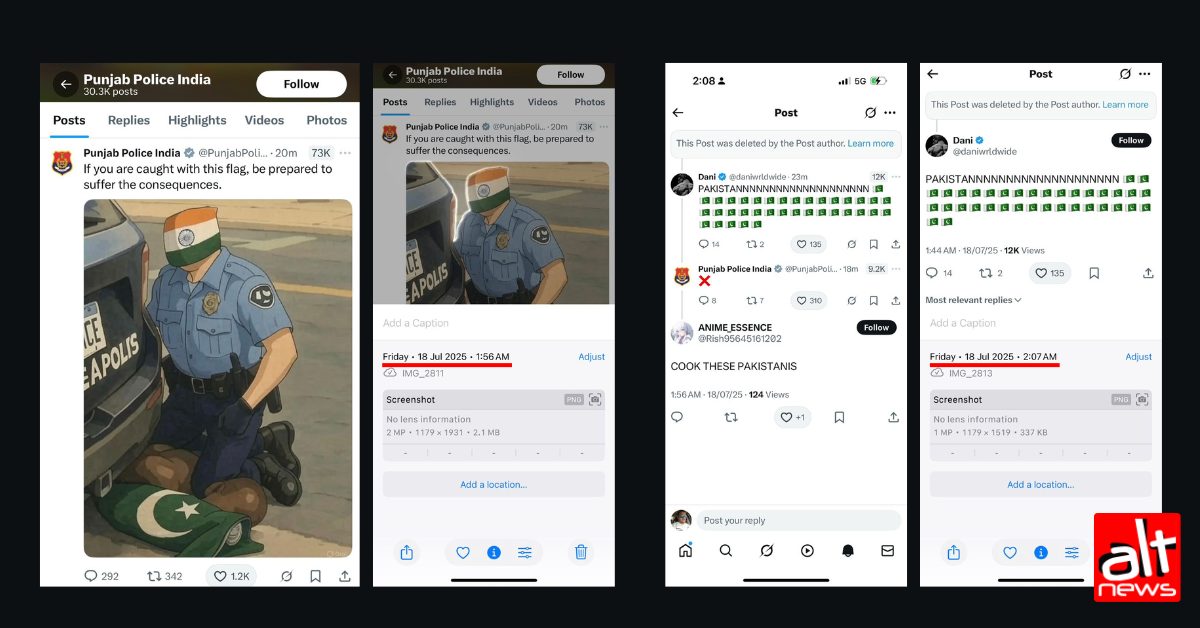
These findings indicate that the Punjab Police account posted the graphic with references to George Floyd’s murder and deleted it later. We found many quote-shares of the deleted post.
Click to view slideshow.
Police Deny Sharing Post
Alt News reached out to the Punjab Police to verify whether such a post was made and deleted. A source close to the state police’s social media team denied making any such post on X. However, this person, who requested anonymity, was unable to give us information on the X post deleted on July 18.
We then reached out to Amit Prasad, the Additional Director General of Police (counter intelligence), who is the nodal officer for the Punjab Police’s social media. Prasad also said they made no such post. “Why would we do such a thing?” he said. On being told that there are several screenshots and that we have procured a verified screen recording that shows otherwise, he said that they are examining the issue. While he reiterated that the post was not made by the police, he made no mention of the X account being hacked or compromised.
Violent AI-Generated Imagery
While investigating the screenshot, we noticed a ‘Grok’ watermark in the bottom-right corner. So, the image was created using X’s AI tools.
To investigate further, we tagged Grok under one of the screenshots and asked if the graphic was generated by it. The X chatbot responded with: “The watermark indicates the image was generated using my AI image tools, accessible to users on X Premium. Anyone could have prompted it — I didn’t create or provide it to Punjab Police, and I don’t endorse its insensitive use.”
Grok’s terms prohibit generating content on illegal, harmful, or abusive activities, including—critically harming or promoting critical harm to human life, including pro-terrorist activities; violating copyright, trademark, or other intellectual property law; violating a person’s privacy or their right to publicity; the sexualization or exploitation of children; espionage, hacking, defrauding, defamation, scamming, spamming, or phishing.
So, while Grok’s response aligns with its content policies, its AI tool seems to be capable of generating violent and controversial imagery resembling real incidents if prompted, potentially contradicting its own guidelines.
Based on these findings, Alt News was able to confirm that the contentious post was shared by the Punjab Police’s X handle and later deleted. We also now know that the imagery was generated using Grok’s AI tools. However, the police’s denial and the odd timing of the post raise questions on whether the account was compromised or the post was made erroneously. No statement has been issued by the state police so far.
The post Alt News finds Punjab police’s X account shared & deleted contentious post alluding to George Floyd’s killing; police deny appeared first on Alt News.
This content originally appeared on Alt News and was authored by Oishani Bhattacharya.
This post was originally published on Radio Free.
 (@reformexposed)
(@reformexposed) 

 (@NotThatBigIan)
(@NotThatBigIan) 










 (@SukolVentures)
(@SukolVentures) 


